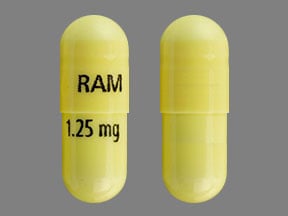
Ramipril Coupons & Savings Card – Discount Prices from $18.38
Generic for: Altace
My prescription
Edit
1.25MG, Ramipril (90 Capsules)
Select pharmacy

CVS
$31.56
COUPON PRICE
Walmart
$18.38
COUPON PRICE
Albertsons
$22.56
COUPON PRICE
Walgreens
$25.11
COUPON PRICERamipril savings card
Show this card to your pharmacist
Walmart
$18.38
BIN
ID
PCN
GRP
019876
LHB210FEEC
CHIPPO
LHX
Powered by
More prescriptions for hypertension
More prescriptions for hypertension
Price history for Altace (brand) & Ramipril (generic)
90 Capsules, 1.25MG
Average retail price for Altace
Average retail price for Ramipril
Average SaveHealth price for Ramipril
Our price history data is based on aggregated prescription data collected from participating pharmacies in America. Our prescription data updates daily to reflect the latest price changes. If you notice a missing data point, it means there wasn't sufficient data available to generate a monetary value for that date.
We analyzed Ramipril prices for (1.25MG, 90 Capsules) over the last 12 months. The average retail price was $37.55, while the average price using the SaveHealth discount card was $35.67. That's a savings of approximately 5.01% when using our Ramipril coupon.
Compared to the generic version, Altace had an average price of $285.29 over the same time period. With the SaveHealth savings card, Ramipril is 87.50% cheaper on average than Altace.
*Retail prices are based on pharmacy claims data, and may not be accurate when we don't have enough claims.
Ramipril dosage forms
Dosage Quantity Price from Per unit 1.25MG 90 Capsules $18.38 $0.20 1.25MG 30 Capsules $5.63 $0.19 1.25MG 100 Capsules $19.42 $0.19 2.5MG 30 Capsules $10.69 $0.36 2.5MG 90 Capsules $20.14 $0.22 2.5MG 100 Capsules $20.71 $0.21 2.5MG 500 Capsules $43.53 $0.09 2.5MG 1000 Capsules $67.50 $0.07 5MG 30 Capsules $10.61 $0.35 5MG 90 Capsules $19.64 $0.22
| Dosage | Quantity | Price from | Per unit |
|---|---|---|---|
| 1.25MG | 90 Capsules | $18.38 | $0.20 |
| 1.25MG | 30 Capsules | $5.63 | $0.19 |
| 1.25MG | 100 Capsules | $19.42 | $0.19 |
| 2.5MG | 30 Capsules | $10.69 | $0.36 |
| 2.5MG | 90 Capsules | $20.14 | $0.22 |
| 2.5MG | 100 Capsules | $20.71 | $0.21 |
| 2.5MG | 500 Capsules | $43.53 | $0.09 |
| 2.5MG | 1000 Capsules | $67.50 | $0.07 |
| 5MG | 30 Capsules | $10.61 | $0.35 |
| 5MG | 90 Capsules | $19.64 | $0.22 |
| 5MG | 100 Capsules | $20.16 | $0.20 |
| 5MG | 500 Capsules | $40.81 | $0.08 |
| 5MG | 1000 Capsules | $66.61 | $0.07 |
| 10MG | 30 Capsules | $10.89 | $0.36 |
| 10MG | 90 Capsules | $21.41 | $0.24 |
| 10MG | 100 Capsules | $22.12 | $0.22 |
| 10MG | 500 Capsules | $46.90 | $0.09 |
| 10MG | 1000 Capsules | $67.50 | $0.07 |
